Each water system is unique and has different needs. Please contact our office at 603-868-3212 with specific questions about your water delivery and filtration system.
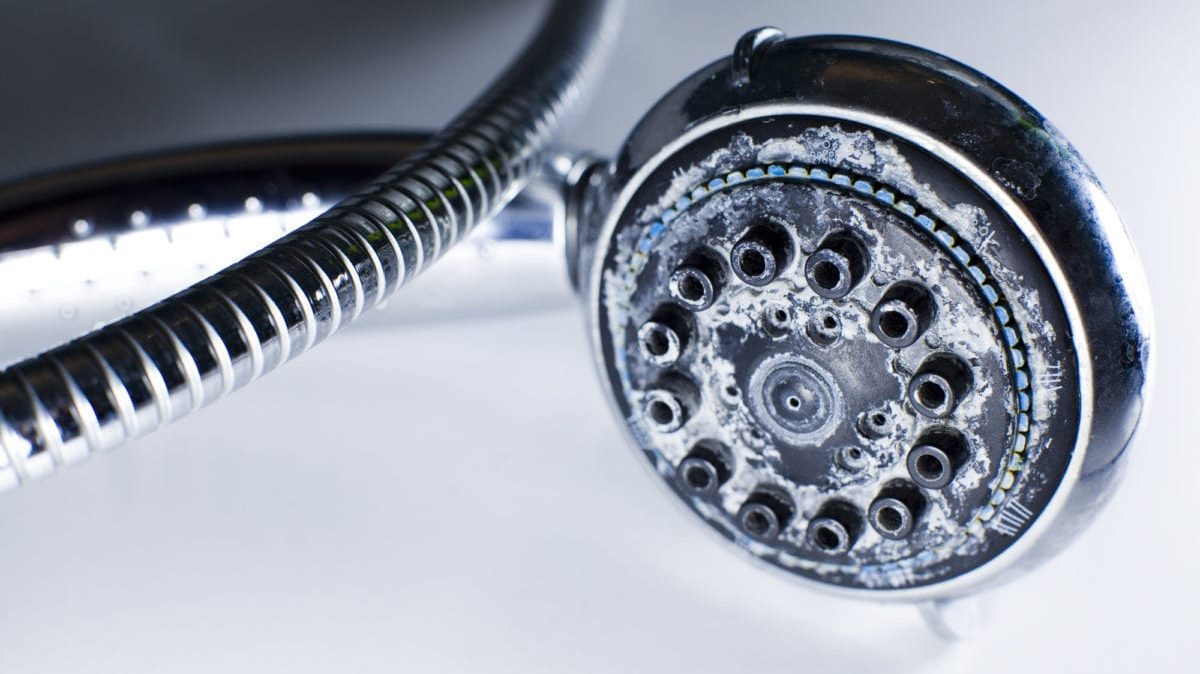
Do you ever deal with white spotting on your glasses? Do you find white scale build up on shower heads and fixtures? Are you having to prematurely replace your hot water heater? If you are, then you may be dealing with hard water.
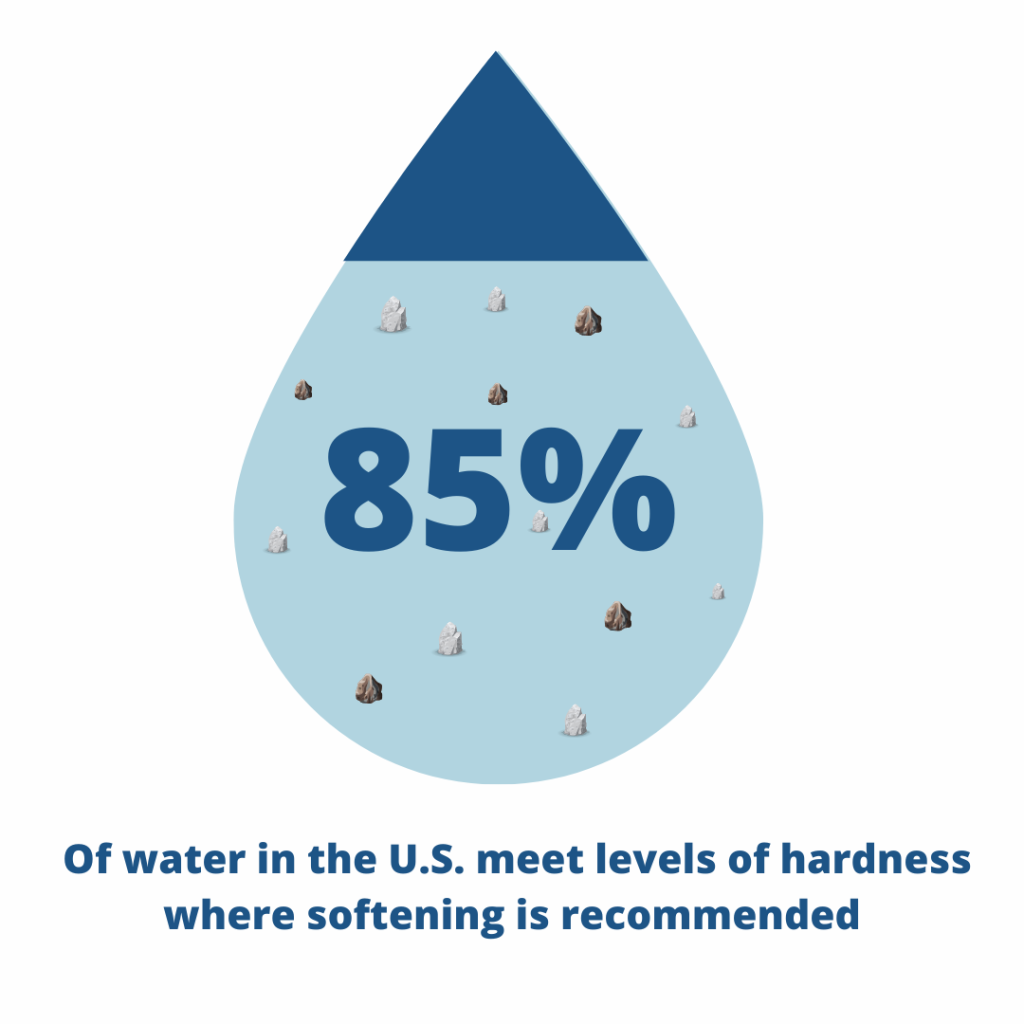
This article goes over:
- What hard water is
- How common it is
- Why it’s a problem
- How to fix it
What is water hardness?
Hard water is water that contains invisible minerals that are dissolved in it. Elements found in water that possess the property of hardness are calcium and magnesium and are present in significant amounts in the form of bicarbonates which are soluble in water. No natural water supply is completely free of water hardness.
How common is hard water?
Water in 85% of the United States is so hard it should be softened to be of maximum usefulness in both residential and commercial/industrial applications of cleaning, rinsing, heating, and energy production.
Why is it a problem?
The minerals that contribute to hardness (generally calcium and magnesium ions) are not toxic; that is, they do not cause harmful health effects.
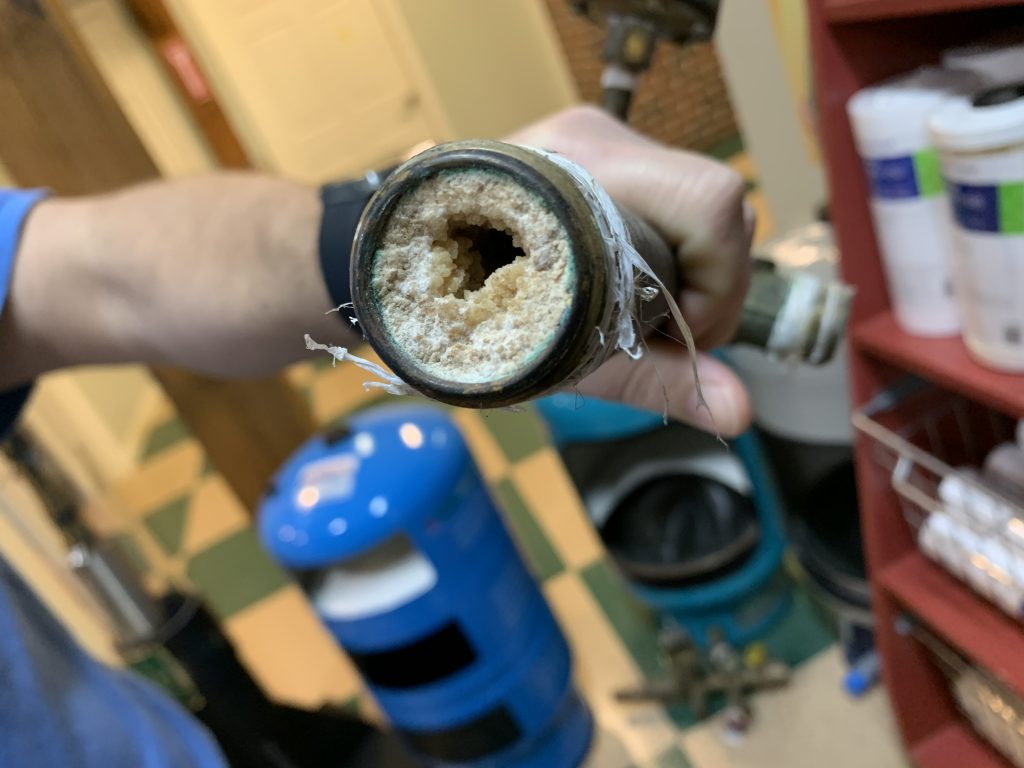
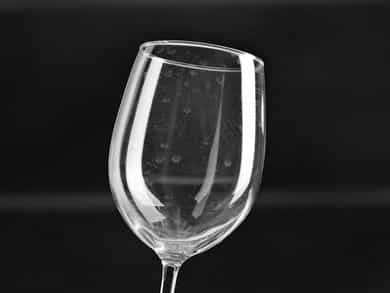
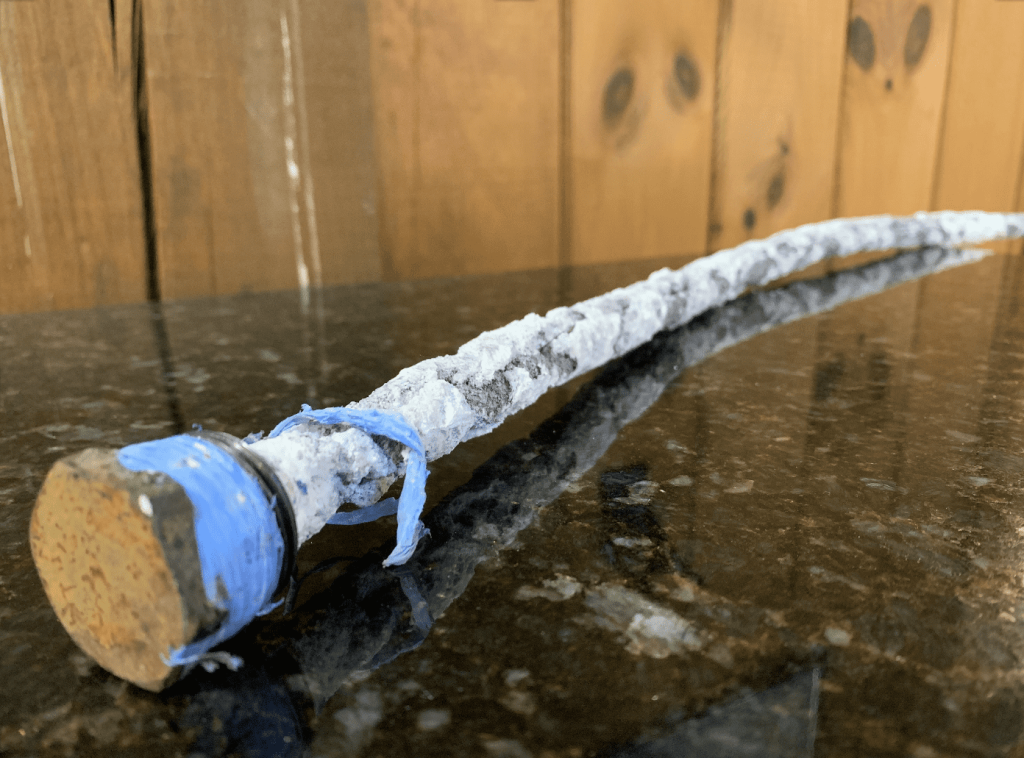
Hard water is a problem when it is used for cleaning, heating, and other types of industrial processes. The most noticeable effects of hard water are scale build up on fixtures, faucets and shower doors, but it can also decrease the effectiveness and efficiency of washing machines, dishwashers, RO membranes, water heaters, etc.
Solutions for Hard Water.
The most effective way to treat water hardness is by using a water softener. A water softener uses a resin media to remove hardness from your water. The resin beads are coated with salt ions and when hard water is introduced to the resin, the bead releases these salt ions and grabs onto the hardness ions. This process is called an ion exchange.
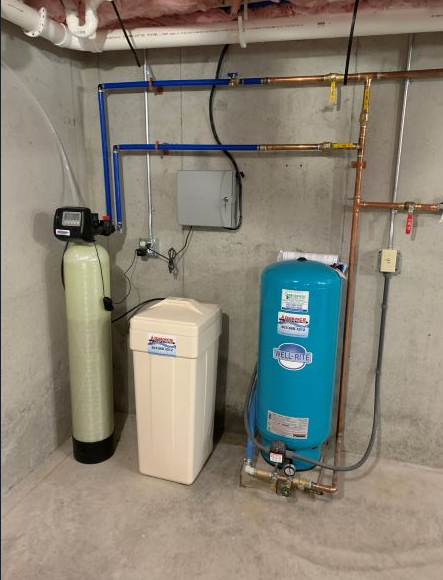
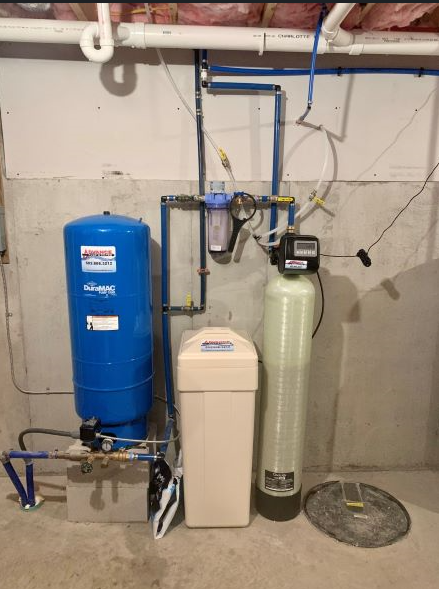
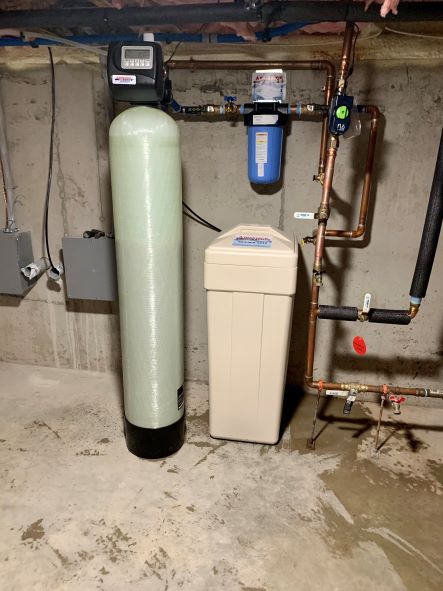
A water softening system features a fiberglass tank that holds the resin beads, a softening valve that directs the flow of water, and a brine tank that houses salt/brine solution that is used to regenerate the resin beads. A system may also need pretreatment in order to protect the resin bed and ensure its effectiveness in removing hardness.
Every water source is different and may require different forms of treatment. We always recommend having an onsite evaluation and water test. If you have any questions about water hardness, or water softeners, please give us a call at 603-868-3212.


